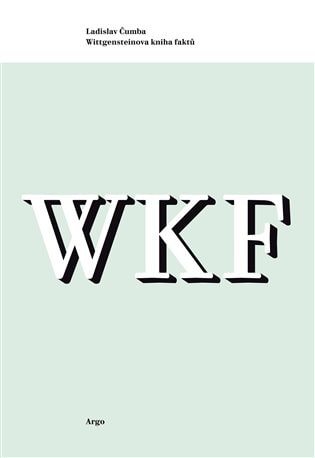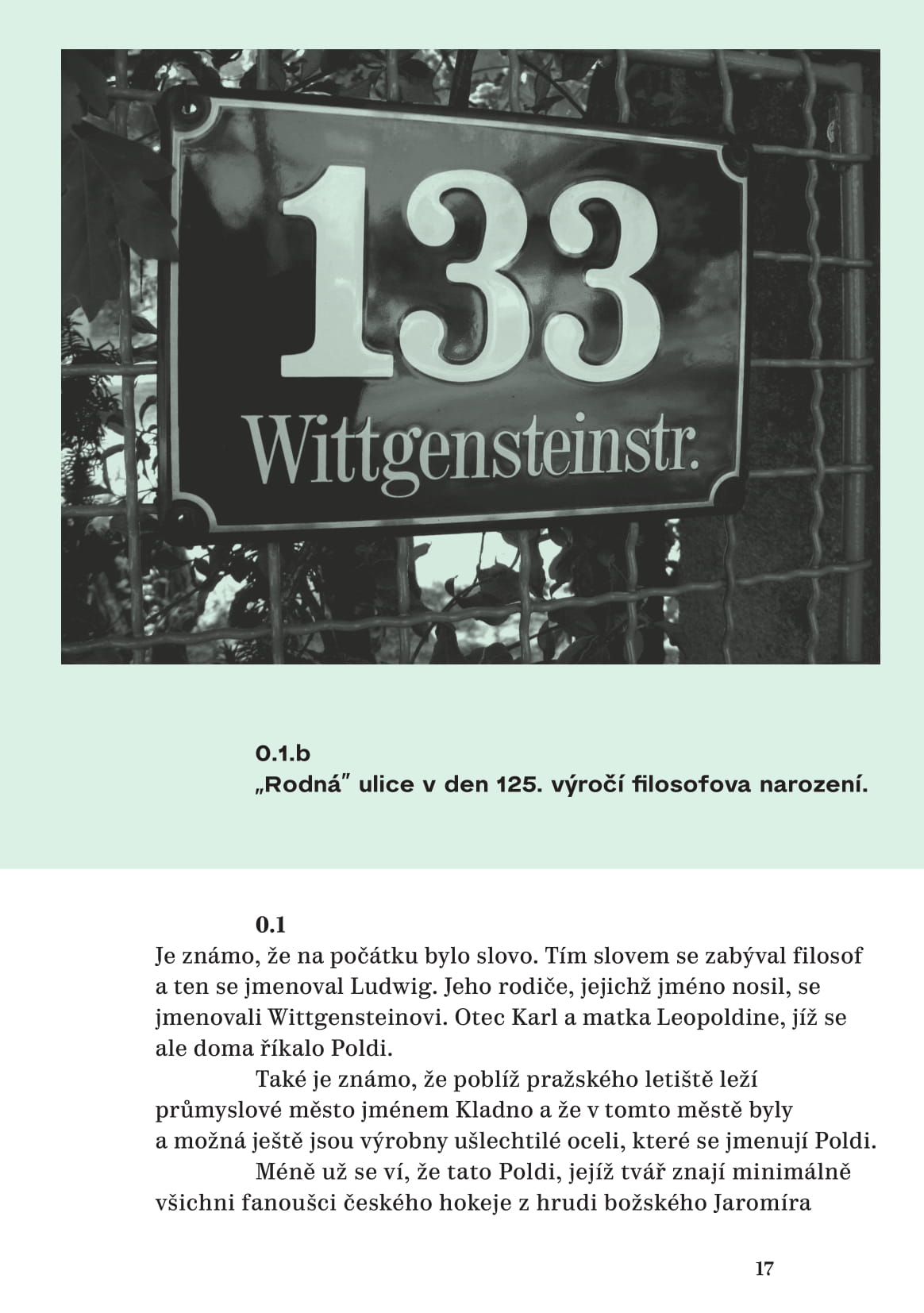Ladislav Čumba
Ladislav Čumba (b. 1976) is a teacher of Czech for foreigners. He is a member of the editorial board of the magazine Babylon, a founder of the civic association Skutečnost and a moderator at musical festivals; a lyricist, an occasional playwright, an amateur actor, a scriptwriter and the author of a mini-opera trilogy.
THE MILOSLAV ŠVANDRLÍK AWARD FOR THE BEST HUMORISTIC BOOK OF THE YEAR (2017)

Wittgenstein’s Book of Facts
January 2017, 368 pages
Rights sold: Poland (Iskry)
Biography written in a readable literary form with humour and subtlety. Awarded the Miloslav Švandrlík award for the best humor book of the year, and simultaneously shortlisted as a critical heavyweight for the F. X. Šalda Award.
Ladislav Čumba’s literary text explores the story of Ludwig Wittgenstein, one of the most influential philosophers of the 20th century. The son of a steelmaker who became one of the richest people in the Austro-Hungarian Empire, as well as the grandson of Kladno’s famed Leopoldine, Wittgenstein turned his back on enormous wealth to become a gardener, and, after a colourful journey, a professor of philosophy at Cambridge University. This story of the Czech traces the family and life of the philosopher in a testimony to the shared tenacity of capitalists and writers; a study of intransigence and tolerance; and a tracing of arts patronage and the power of language. It also explores Wittgenstein’s links to eminent artists of the period, such as Rilke, Trakl, Klimt, Brahms, Hindemith and Ravel. The book is fortified by Jan Čumlivski ‚s remarkable graphic design, which incorporates textual with pictorial collage.
“This is not a philosophical work, an attack on Wittgenstein’s ideological world, a discussion or a polemic. Čumba is concerned with an investigation into the background in which Wittgenstein grew up, both real and theoretical. He is following in the footsteps of all kinds of experiments and postmodern actors, from Jarry, through Queneau and Perec, to Ouředník and Brikcius. And to a certain extent, also Wittgenstein himself.”
—Týdeník Rozhlas
“A member of a family and a distinguished personality who left an indelible imprint on the march of history.”
— Lidovky.cz
From the sample translation
“It’s well-known that in the beginning was the word. The word occupied a philosopher and his name was Ludwig. His parents, whose name he bore, were named Wittgenstein. His father was Karl and his mother Leopoldine, known at home as Poldi. It’s also well-known that not far from Prague airport lies an industrial town by the name of Kladno where stainless steel named Poldi was produced, and may still be. It’s less well-known that this Poldi – whose face is familiar to all Czech ice hockey fans at least, from the chest of the godlike Jaromír Jágr – is the same Poldi whose son became the most famous professor of philosophy at Cambridge University in the 20th century. It’s even less well-known that her husband, Ludwig’s father, was the most successful capitalist in the Austro-Hungarian Empire as he was the first to grasp the difference between monopoly and competition and, at the right time and in the right field, became incredibly wealthy on the back of this difference.”
Download English sample
Download German sample
